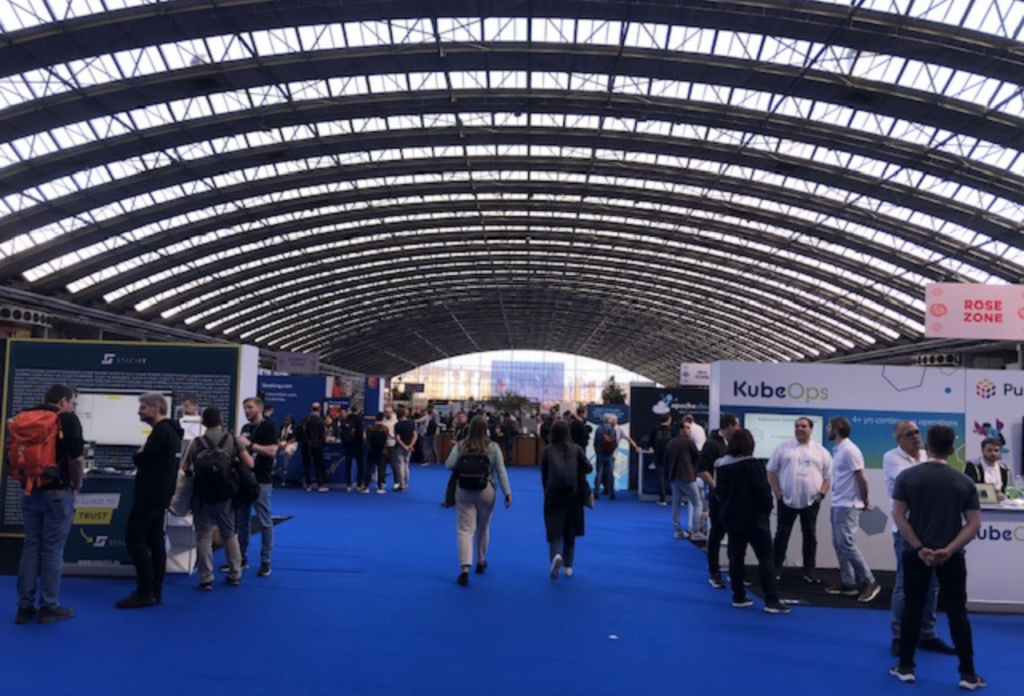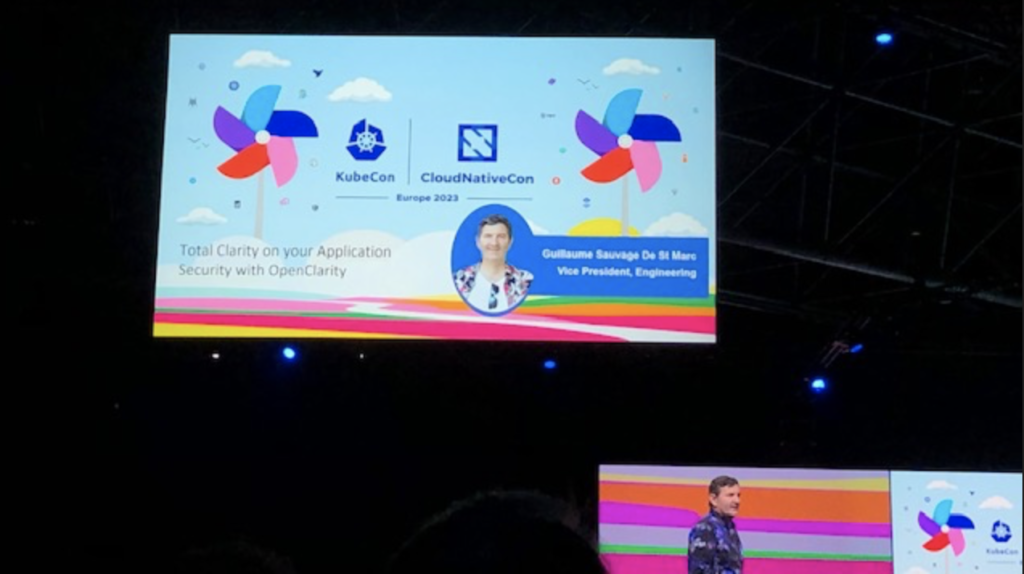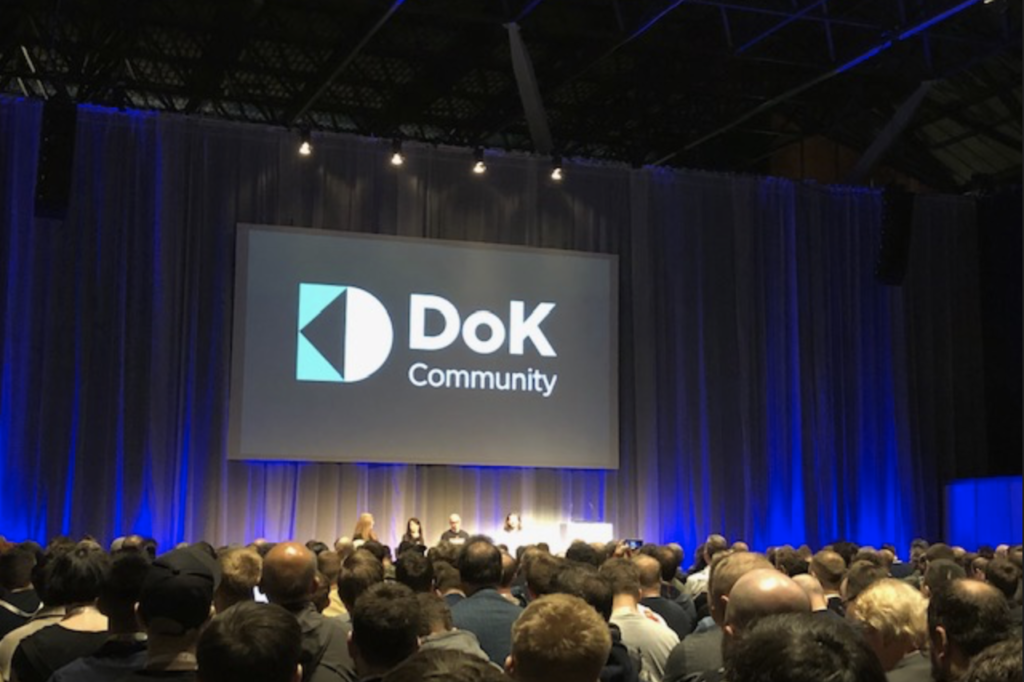The night in Amsterdam was calm, we were in the city with my colleague Benoît Entzmann and we had a good typical Dutch Dinner, we enjoyed the meal. One point to notice is that RAI Amsterdam is really well deserved, easy if you want to visit the city and come back to the hotel using the metro. Good choice for the event – thanks to the KubeCon & CloudNativeCon for the really good organisation of the event. The program is exhaustive and the facility is really well organised.
The 2nd day for the KubeCon was another amazing day with interesting sessions where I continue to learn a lot.

Again, thanks to dbi services for this great opportunity to travel and see maintainers of such amazing open source projects talking about the most future advanced technologies – CloudNative, Kubernetes, KataContainer, GitOps. That’s the current trend and I’ve seen with involved and experienced people how it evolves and how it should continue to evolve.
The day begin as usual with 7 sessions for the Keynote – everybody were in the same huge room to hear some news such as the progression around the OpenSSF (The Open Source Security Foundation) and why they migrated all the container images from k8s.gcr.io to registry.k8s.io. We can easily search on google for the why – faster, cheaper but it’s mainly to spreads the load across multiple cloud providers like a CDN for Kubernetes container images. They also explained that Cloud Native evolves to not only be used for stateless micro services but it’s widely used for any type of applications including databases.
We also received update on the following CNCF projects :
- Backstage
- Cert manager / Trust-manager
- Cilium
- Cloud Custodian
- CloudEvents
- CRI-O – introduction of Evented PLEG
- Dapr
- Dragonfly
- Emissary-ingress
- Falco (2 new releases since the last event)
- gRPC
- In-Toto
- Istio focused to make it work without sidecar container
- Knative
- Longhorn
- NATS
- SPIFFE/SPIRE for Mtls
OpenClarity has been also quickly introduced. If you search and google it, it’s a set of Open Source tools for Cloud Native security and observability. APIClarity, KubeClarity and VMClarity. Tools that I would need to install and test to see what they would bring. So much tools, and no time, I would have to delegate.

Today, I followed several sessions
- Kubernetes Database Operators Landscape
- Container Is the New VM: The Paradigm Change No One Explained to You
- Telepresence Case Studies: From First Experience to Fast Feedback at Scale
- Building a Successful Business in Cloud Native
- Mission-Critical PostgreSQL Databases on Kubernetes
- Disaster Recovery: Bringing Back Production from Scratch in Under 1 Hour Using KOps, ArgoCD and Velero
I get interesting information that would be useful at dbi services. I saw that database on Kubernetes is really emerging and begin to be a trendy topic. There is already a lot of Kubernetes database operators available in the community. The only problem is to know if they are providing a good quality. The aims is to operate things automatically, managing the day-to-day operation as a virtual dba, starting from database creation, self tuning, self healing such as automatic index creation, backup and restore, database monitoring, storage management, high availability and upgrade. Most of them have the same purpose as why we run an application in Kubernetes. Why not use Kubernetes to leverage them ? Main challenges is to really trust the operator in term of security and data continuity.
There is already an Open Community that is working on that topic called the Data on Kubernetes Community (DoKC). As per the main page here, it was founded to lead discussions and share best practices about running stateful workloads on Kubernetes. At the moment there is no real guidance for the Kubernetes database operator developper, there is no scalability workload model, testing and success criteria. The experts advise would be to re-engineer the database model for cloud native model (host base access control – hba in postgres do not make sense on Kubernetes)

That’s all for today, we will go and enjoy the night in Amsterdam, the last night / day is at the corner.
![Thumbnail [60x60]](https://www.dbi-services.com/blog/wp-content/uploads/2022/08/ABE_web-min-scaled.jpg)
![Thumbnail [90x90]](https://www.dbi-services.com/blog/wp-content/uploads/2022/08/DWE_web-min-scaled.jpg)
![Thumbnail [90x90]](https://www.dbi-services.com/blog/wp-content/uploads/2022/10/OSC_web-scaled.jpg)
![Thumbnail [90x90]](https://www.dbi-services.com/blog/wp-content/uploads/2023/03/KKE_web-min-scaled.jpg)